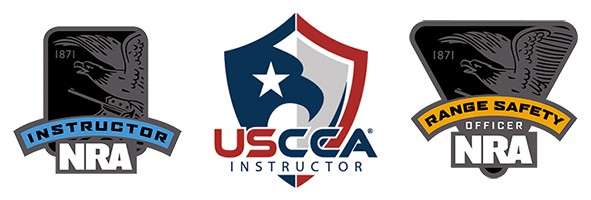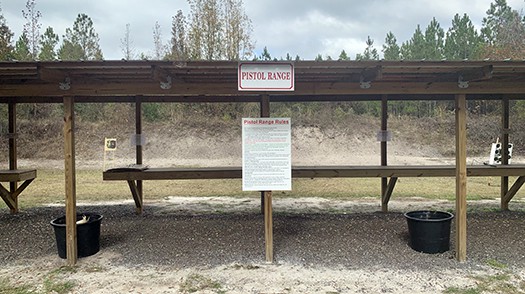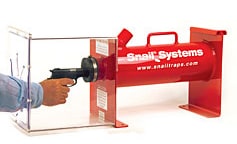Do It Right, or Do It Twice
Imagine for just a moment that weeks, months, or even years down the road you receive a notice from the State of Florida revoking your Concealed Weapon or Firearm License due to insufficient training. Now hang on! You took a concealed carry class and showed proof to the State. Surely this is a mistake. Isn't it?
Well here's the deal. The State found out the class you took didn't meet the statutory requirements, so they pulled your permit. You wasted your hard-earned money, your valuable time and, to make matters worse, you now have to do it all over again.
In this article, I give you the tools and info you need to make sure this doesn't happen to you.
What to Look For
There are two main things you should look into, and then each can then be broken down further. They are:
- The instructor's credentials and experience, and
- A breakdown analysis of the class itself
Background Check Your Instructor
I recently caught wind of a Gainesville based "firearms training group," and I use that term loosely, that has been teaching illegal concealed weapons permit classes for quite some time. By "illegal" I mean they don't meet the State's training requirements.
I hate to say it, but there are a lot of less than reputable firearms instructors out there. If you aren't researching your instructor(s) before handing over your hard-earned cash, you're doing yourself a huge disservice.
Credentials
Section 790.06 lists a few different ways that firearms instructors can become certified to teach Florida concealed carry classes. When deciding on an instructor for your class, make sure they are certified by one of the following organizations:
- National Rifle Association (NRA)
- Criminal Justice Standards and Training Commission (CJSTC)
- Department of Agriculture and Consumer Services (DOACS)
- State-Certified (Class K) Firearms Instructor

There is also a Memorandum of Understanding that the Division of Licensing also accepts classes taught by USCCA instructors.
Law Enforcement and Military Experience
Finding an instructor with prior law enforcement or military experience may be a good thing to look out for, but I wouldn't necessarily consider this to be the Holy Grail.
I say this because some LE/military instructors are so focused on being Joe Tactical ("tacticool") that they simply aren't the best choice for an introductory concealed carry class.
You can often spot these instructors from a mile away because one of the first things they want you to know is that they are a SWAT "Operator" or a "sniper." While there is nothing inherently wrong with being a member of the local SWAT team, if it's their primary talking (i.e. bragging) point I suggest you look elsewhere. You want an instructor who is friendly and relatable, not one with an inflated sense of self-importance.
Investigate the Class
If I haven't made it obvious yet, not all firearms training classes are created equal. By taking a look into the class's particular characteristics you should be able to get a pretty good idea of whether the instructor is merely rubber-stamping certificates, or if they will teach you how to safely and effectively use a firearm to defend yourself.
Here's a few key things to pay attention to:
- Class location
- Class length
- Class size
- Class tuition
Class Location
Any class that is conducted somewhere other than at a firearms range will not meet the requirements. Why? Because Section 790.06 of the Florida Statutes requires that every student "discharge the firearm in [the instructor's] physical presence and that the discharge of the firearm included live fire using a firearm and ammunition."

I don't know about you, but I don't know of any hotels that let you shoot a firearm inside their conference room. And the air guns used by this "firearms training group" discussed above don't meet the statutory definition of a "firearm," nor do air pellets meet the definition of "ammunition."
Class Length
I don't have a hard and fast rule of thumb for this one, so use your judgment. If you're signing up for a class that's 2 hours long, you're probably not going to learn a whole lot, and I'd even be skeptical how much shooting time (if any) you'll get. When I took my CCW class back in 2009 we got to shoot one bullet...straight into a bullet trap, not even at a target.

Fortunately I already knew how to shoot from previous training, otherwise I would have been up the creek without a paddle.
Cheap classes are usually short and packed with students. How much learning can possibly take place in such an environment?
Class Size
I think everyone can agree that as the number of students per instructor (student-to-instructor ratio) increases, the quality of training is likely going to decrease. It's simply not possible for one instructor to adequately train 20 or 25 students, or more!
You may be asking yourself how in the world you're supposed to know how many students are going to be in the class.
Checking out the instructor's previous class photos is a good place to start. You'll likely find these on their social media pages (Facebook, Instagram, etc.) or on their website.
If there are 50 students in a single class, that's a pretty good indicator that the class is packed like a can of sardines, and the instructor is more focused on quantity than quality.
How much quality discussion do you really think you'll be able to have with that many people crammed into a single class? How much personalized instruction do you think you'll get when you're one of 50 students on the range? And 1-on-1 time...Forget about it!
I try to keep classes between 5 and 8 students. I've found this to be just the right size to have student involvement in discussions while also being able to provide personalized instruction on the range.
Class Tuition
This goes hand-in-hand with the class size.
Firearms instructors make money in one of two ways: Either they charge a little and jam-pack the class with students, or they charge a little more and run smaller, personal classes.
I'm not saying the most expensive class is guaranteed to be the best class, but choosing a class just because it's the cheapest is a recipe for disaster.
If you find a class that costs less than the daily rate at the local gun range, that should be a huge red flag. The FBI calls that a clue. I can promise you the instructor is not going to lose money teaching a class. If the class is cheaper than the range, it's safe to say there won't be any range time.
Don't waste your money.
Our Guarantee
Here at Trigger Pressers, all of our concealed carry classes are guaranteed to exceed the State of Florida's requirements.
All of our instructors are certified by both the NRA and the USCCA.
Additionally, our courses run all day, and you will shoot at least an entire box of ammo at real targets.
I cap our classes at 6 students per instructor. This ensures that we are able to devote our attention to you, and provide you with the personalized instruction you deserve.
So what are you waiting on?
All you've got to do is click the red button down below and you will be well on your way to joining us in the #1 firearms training course in Florida.